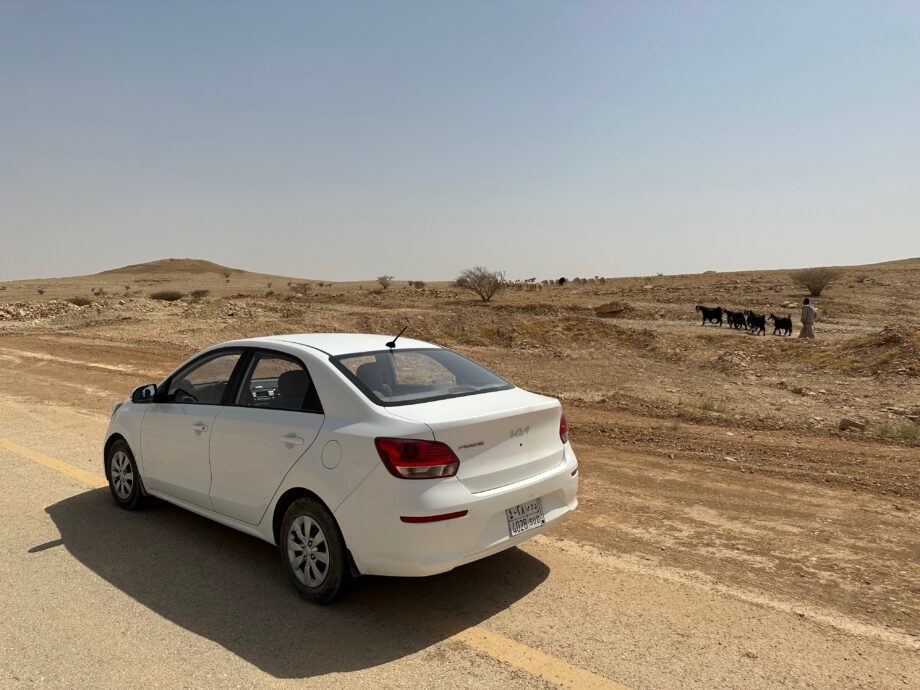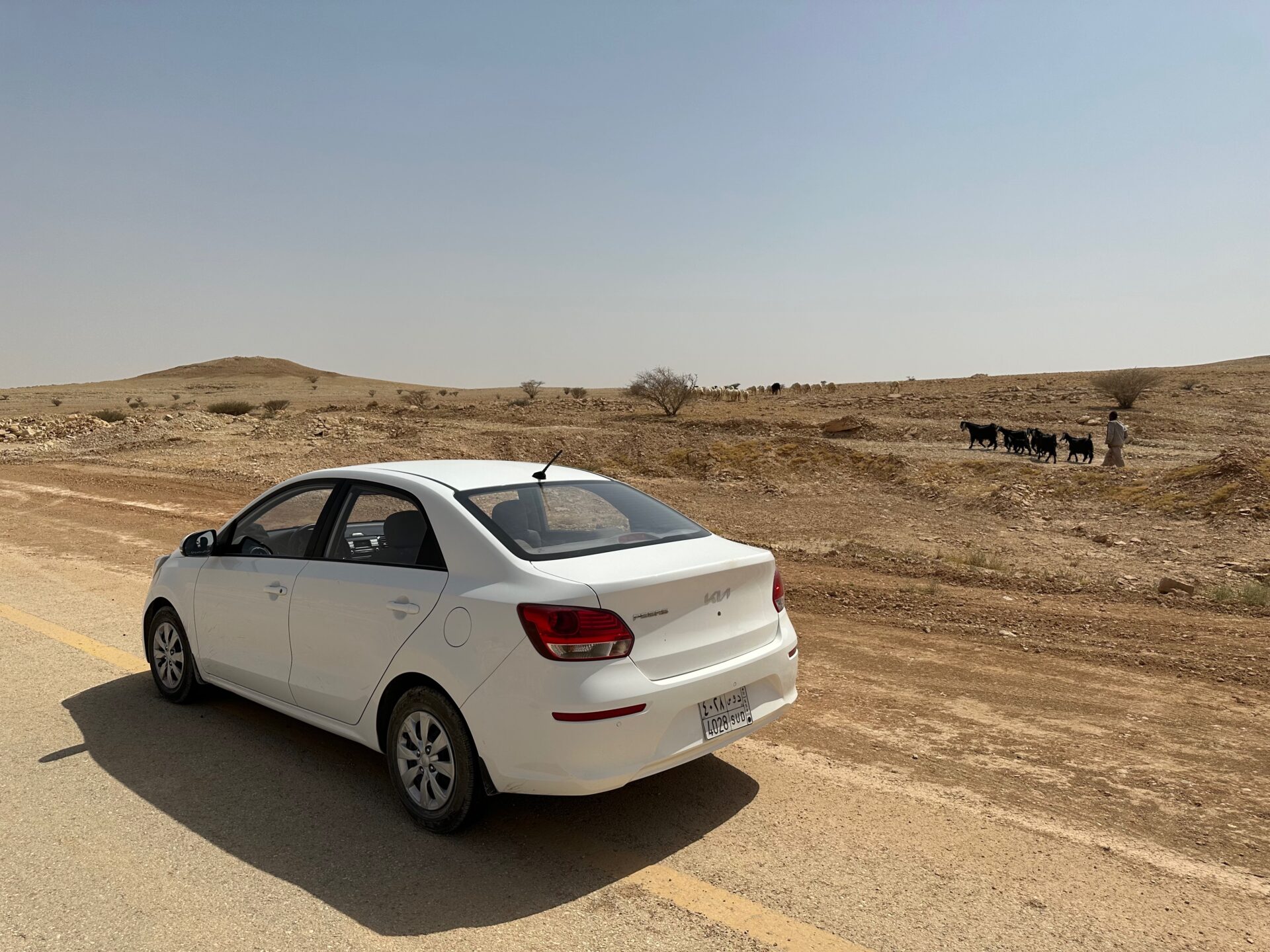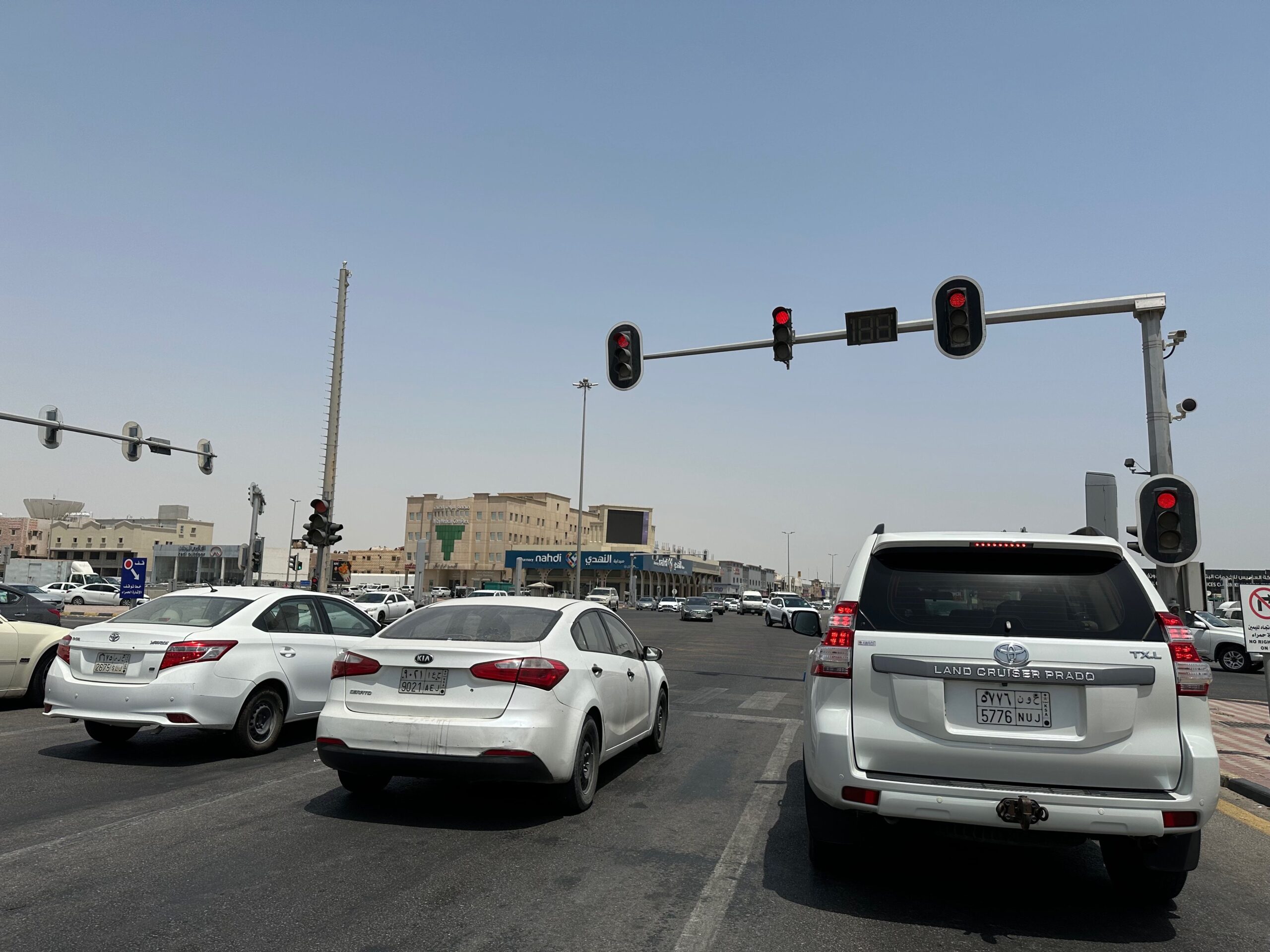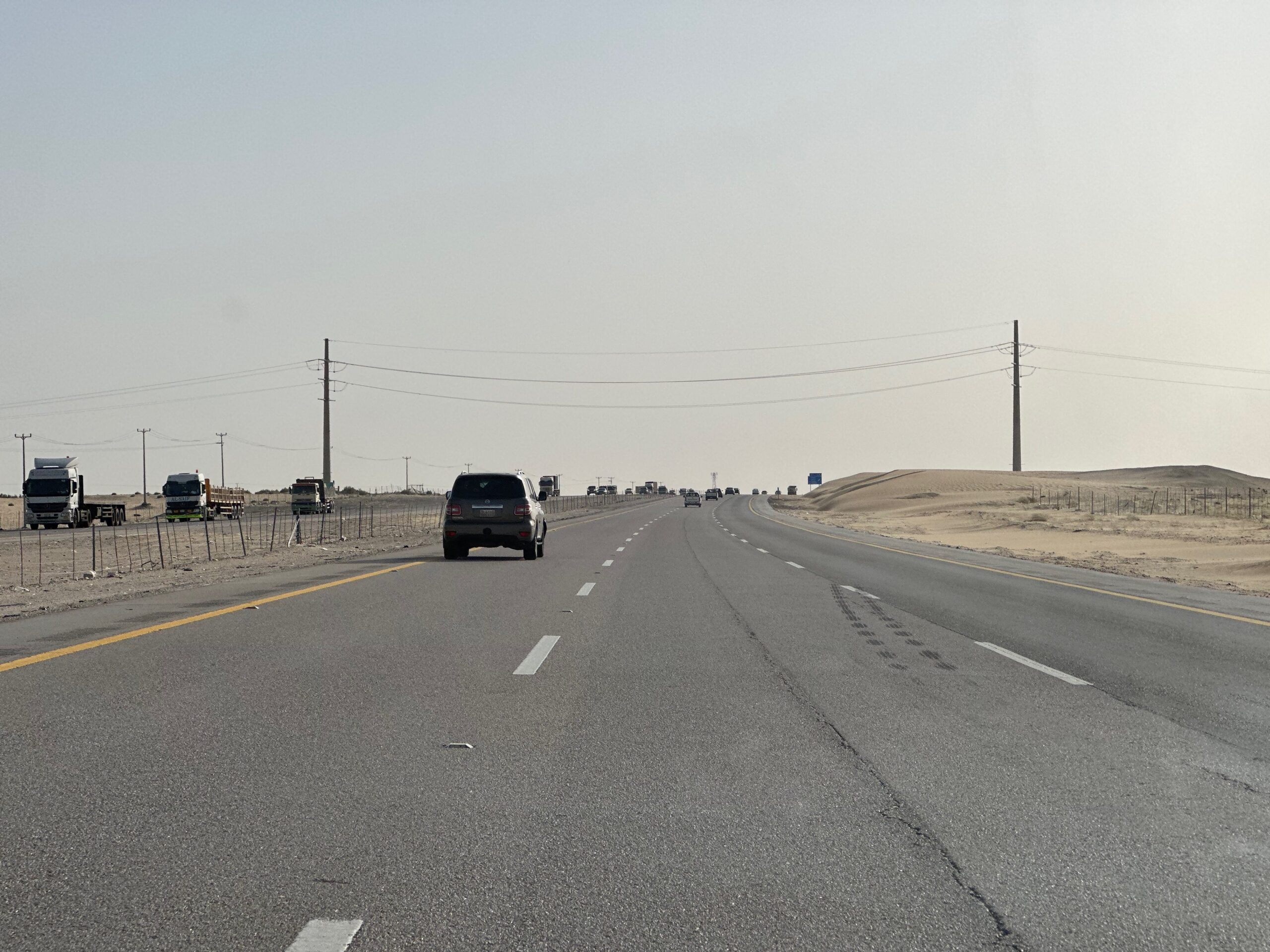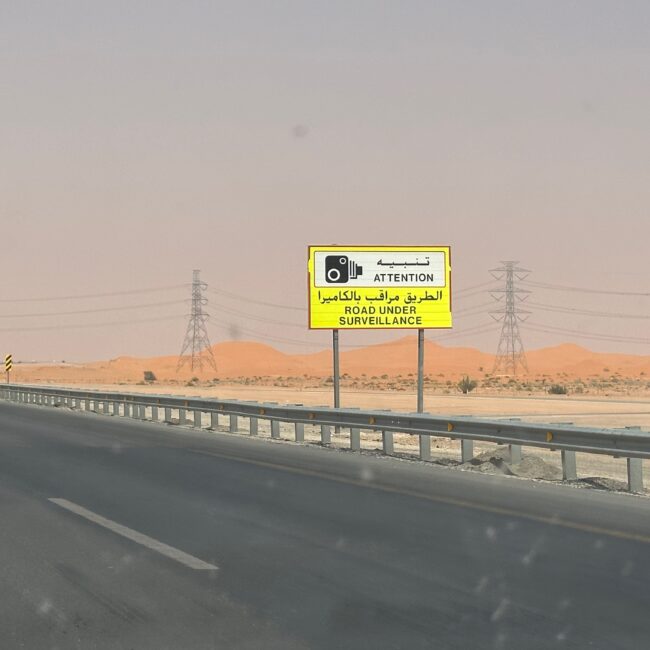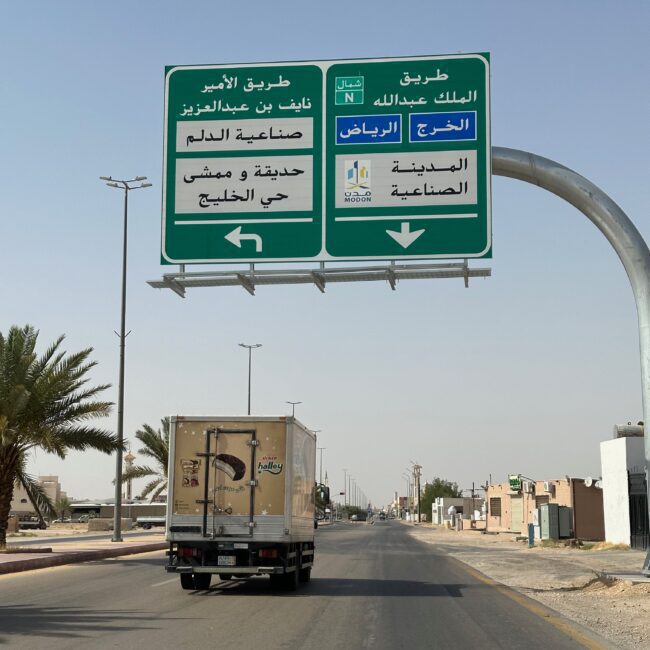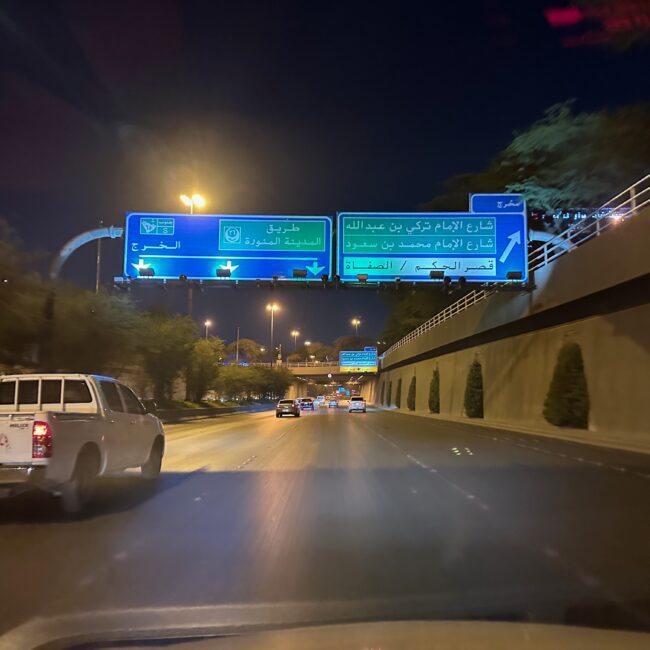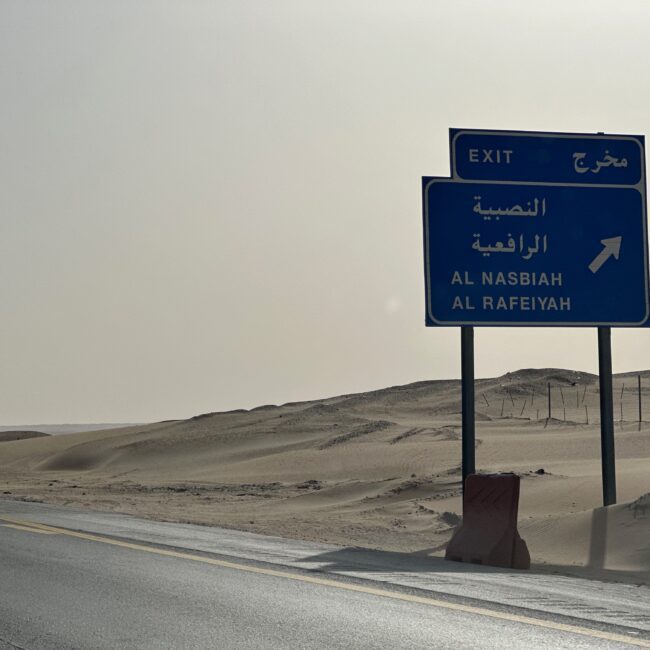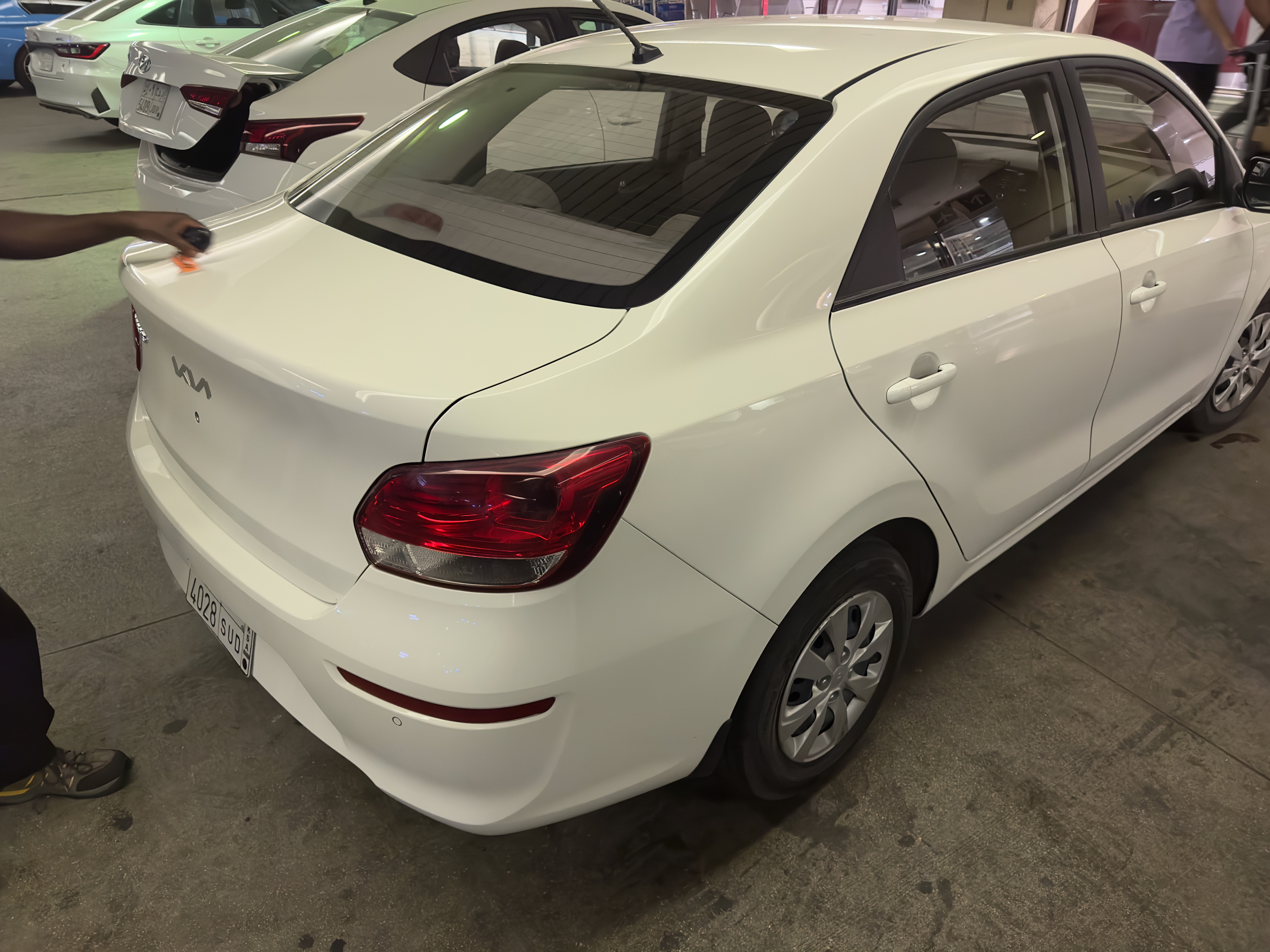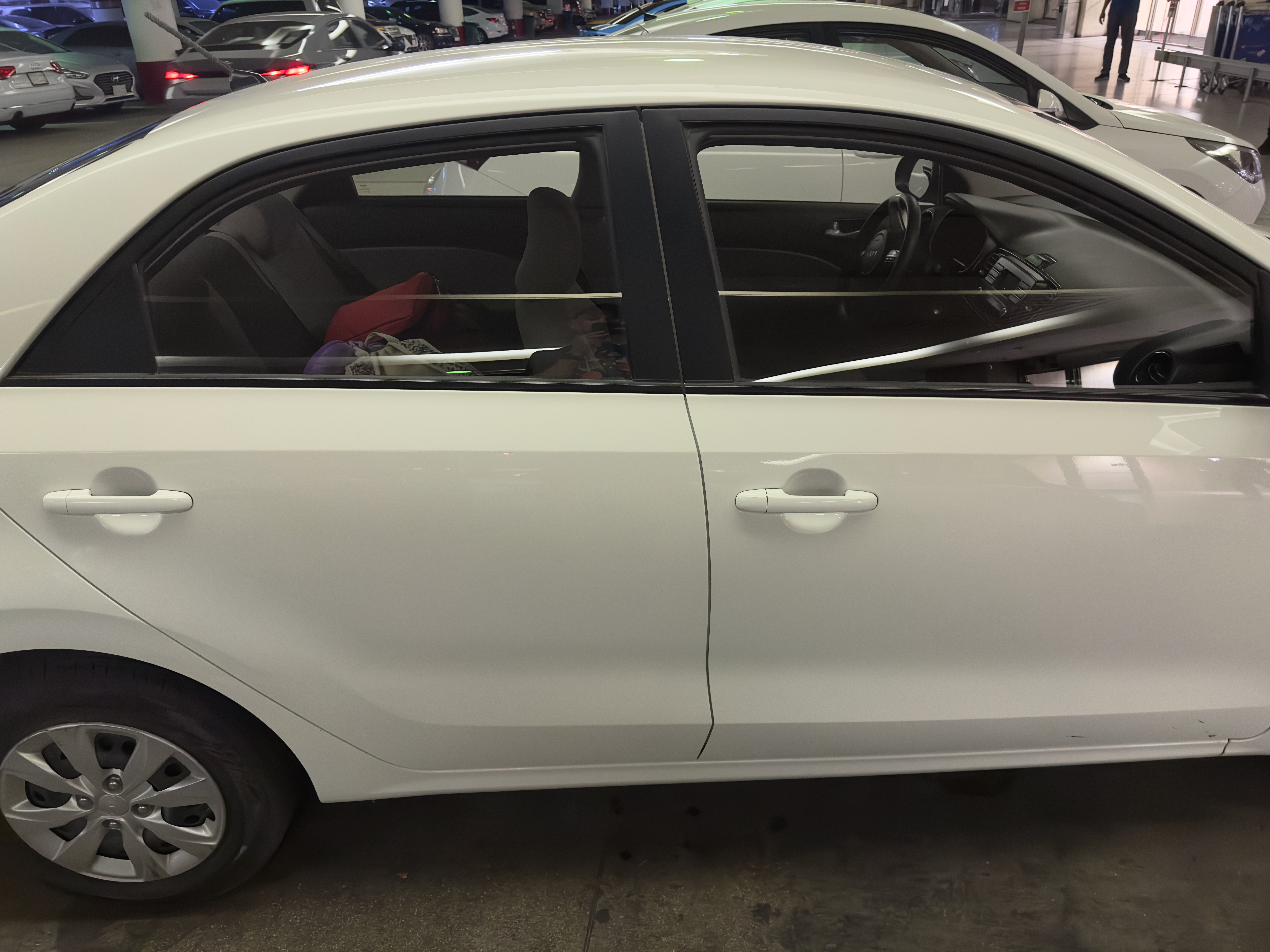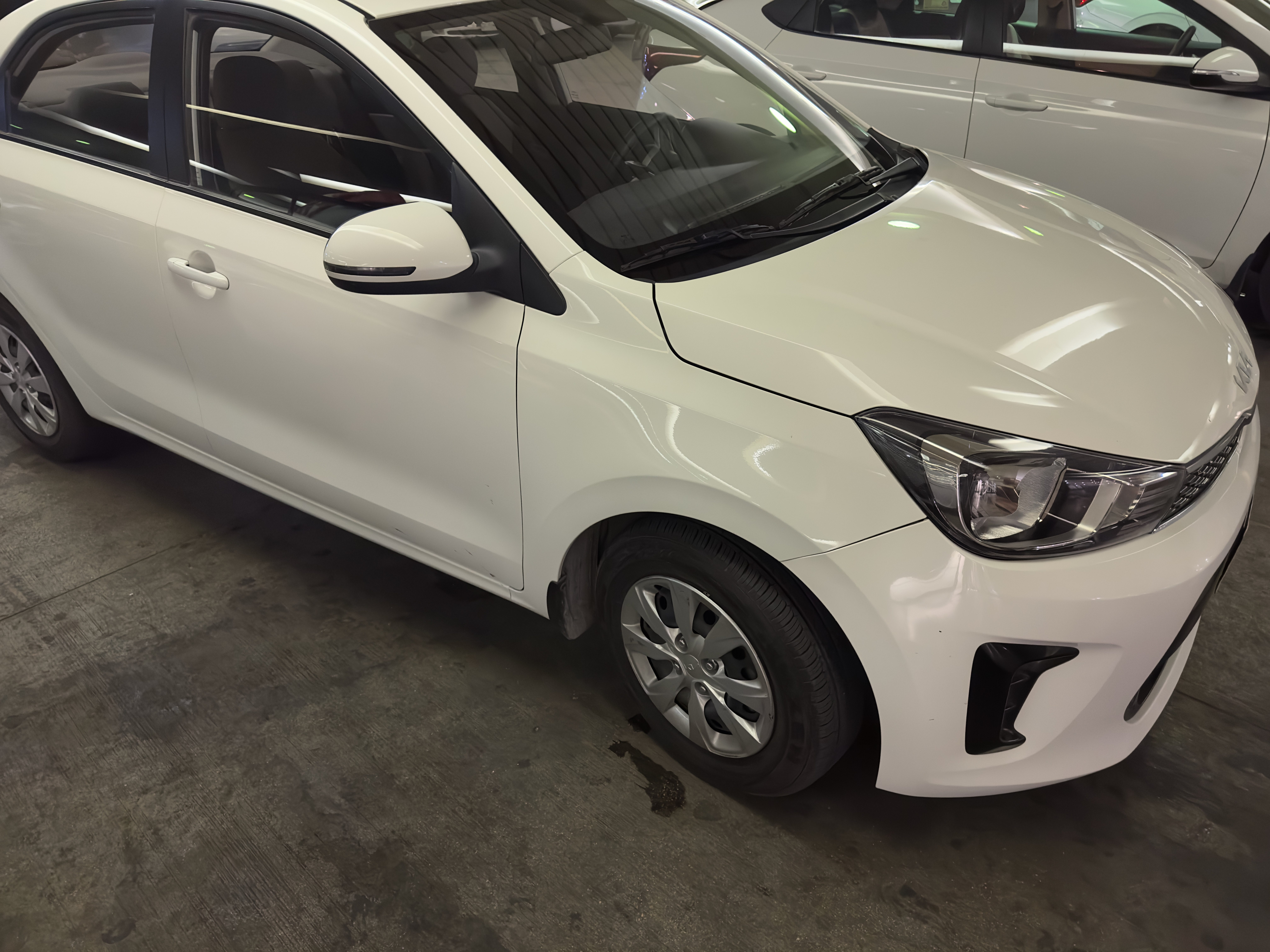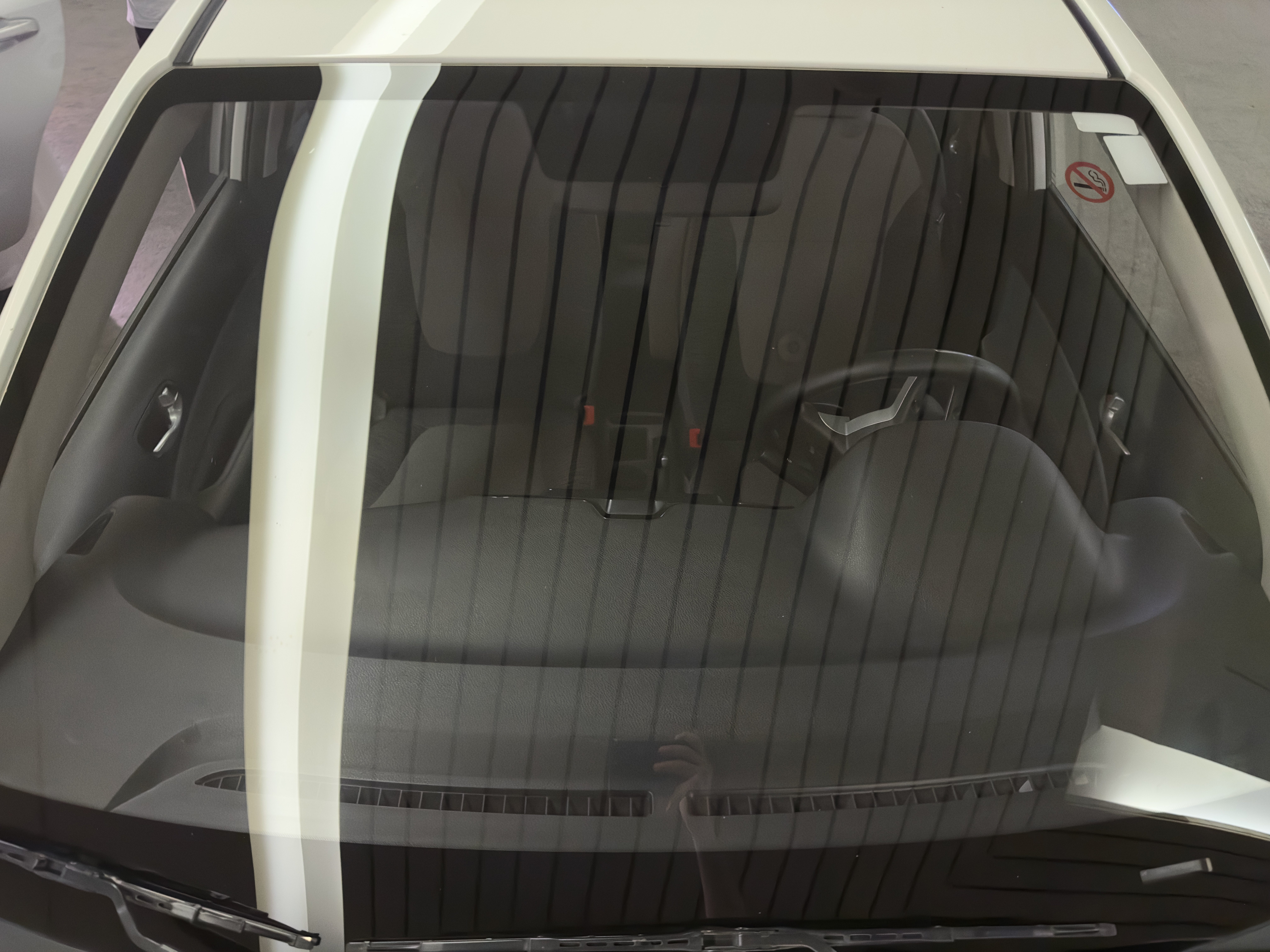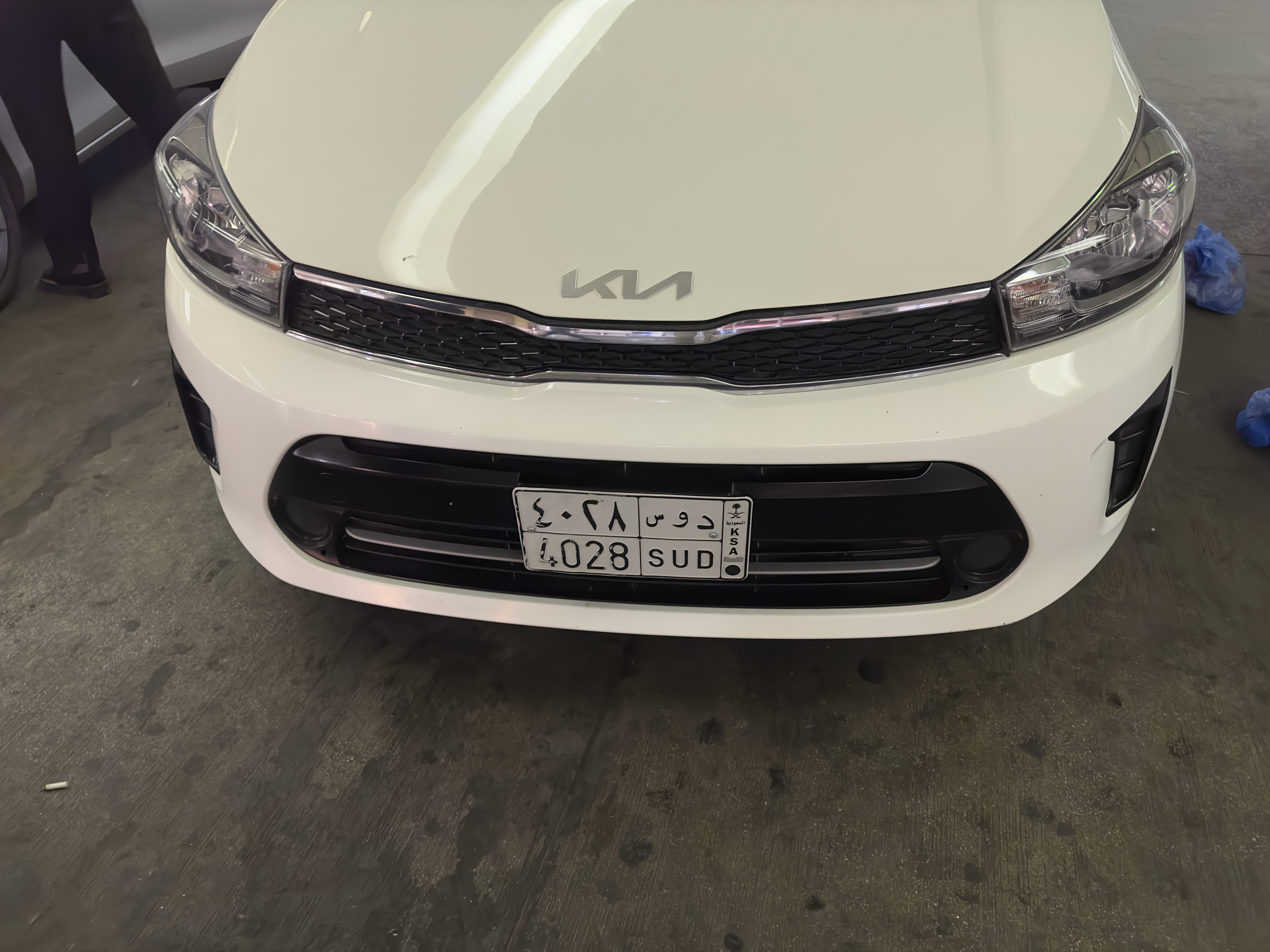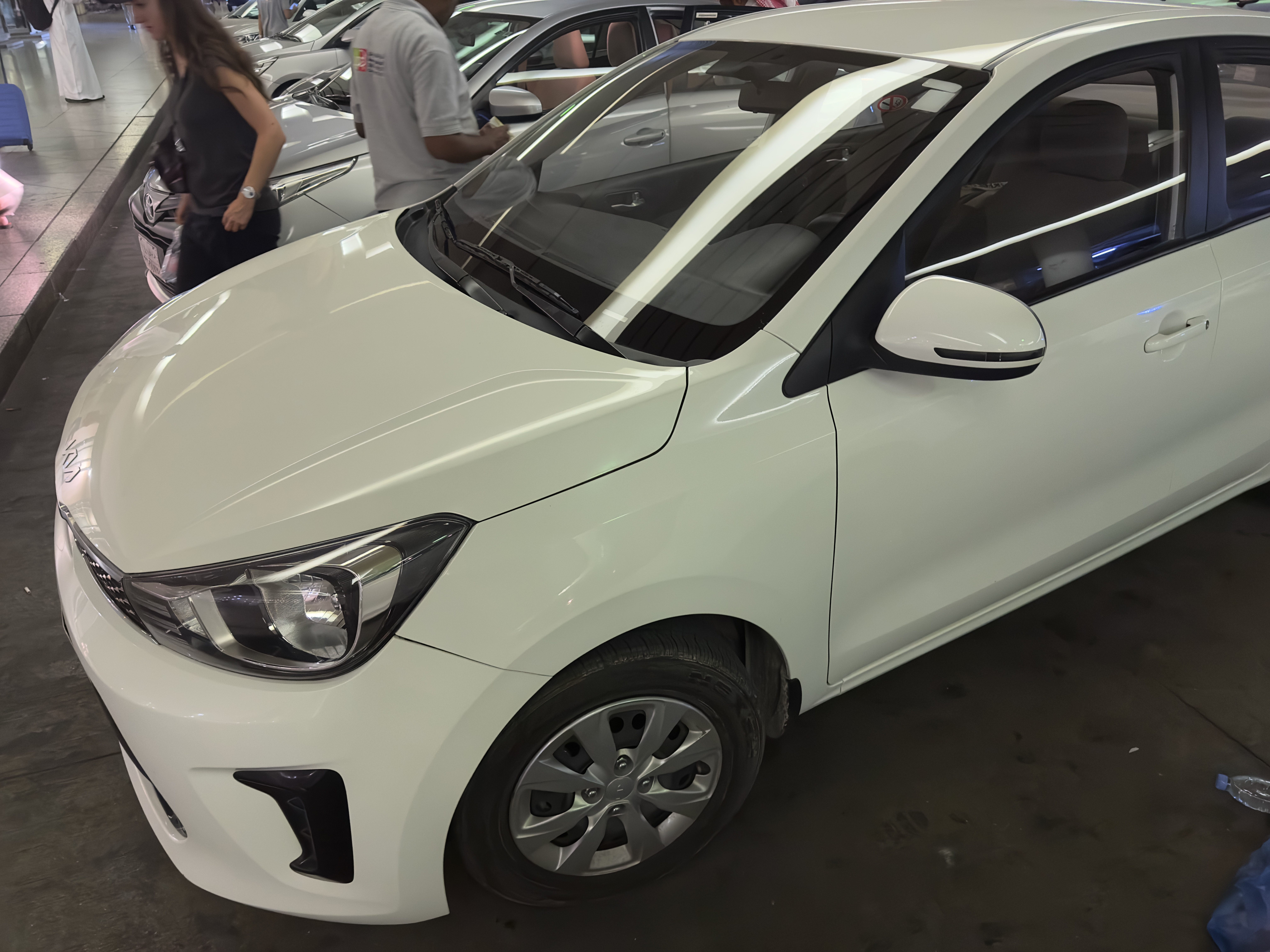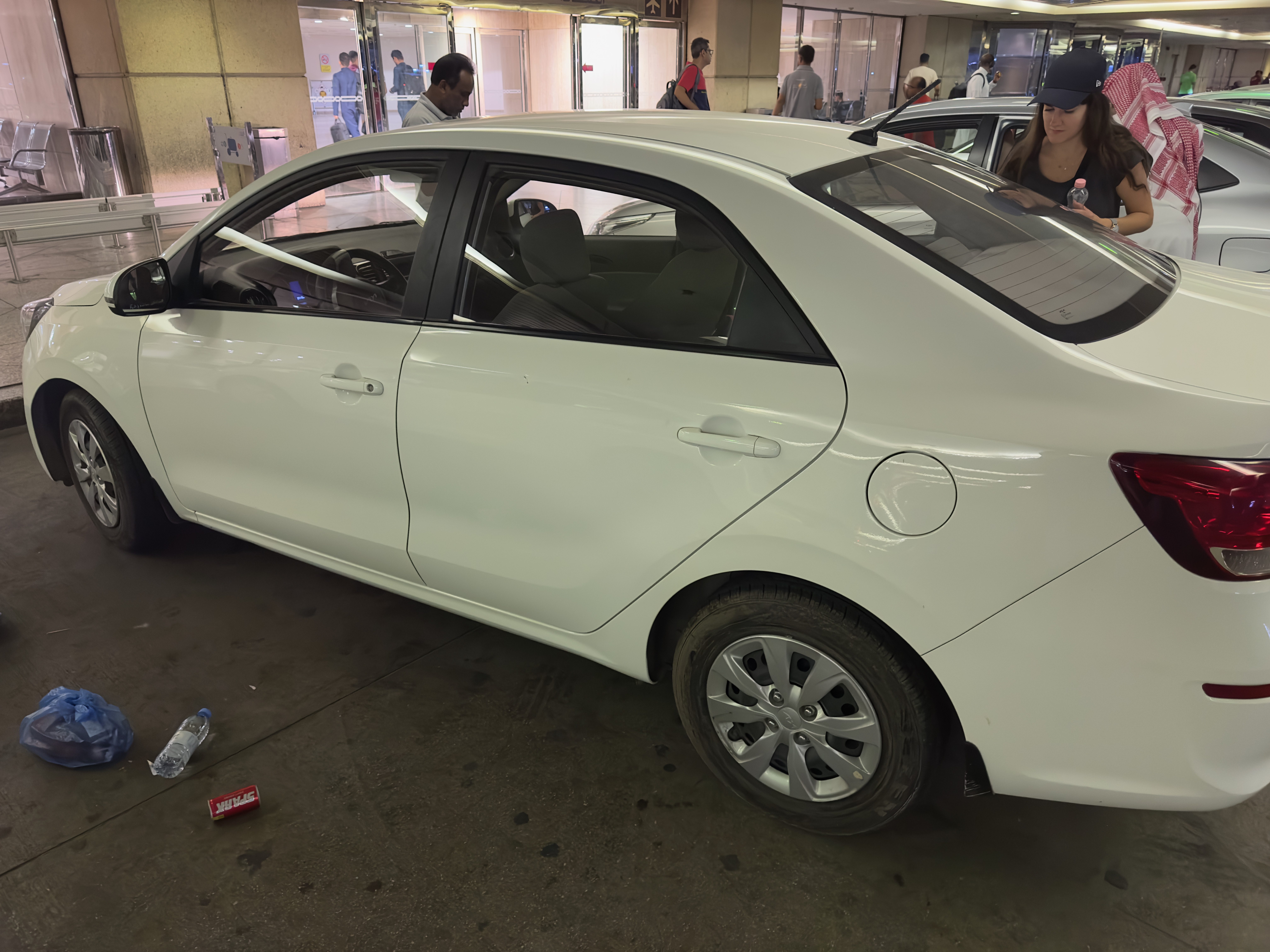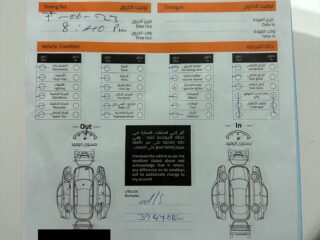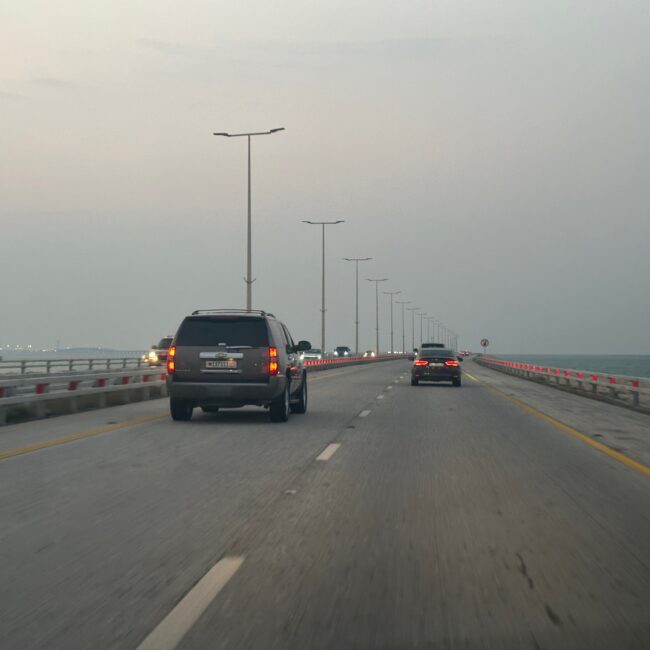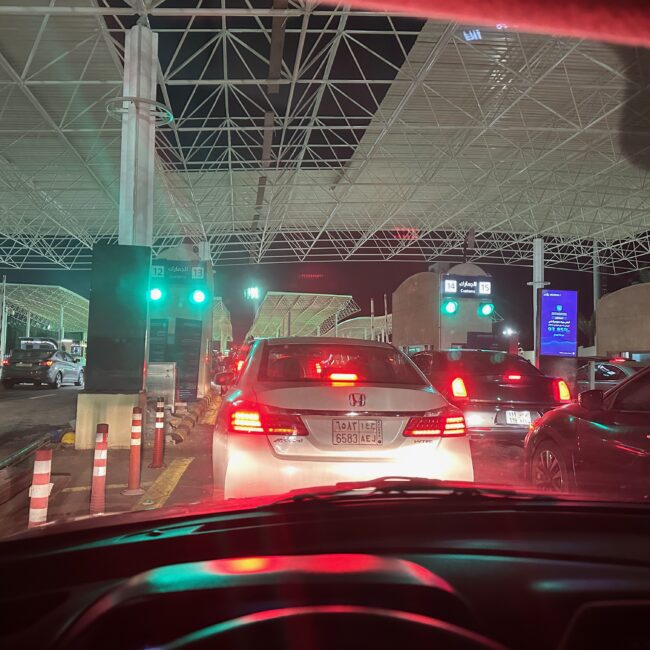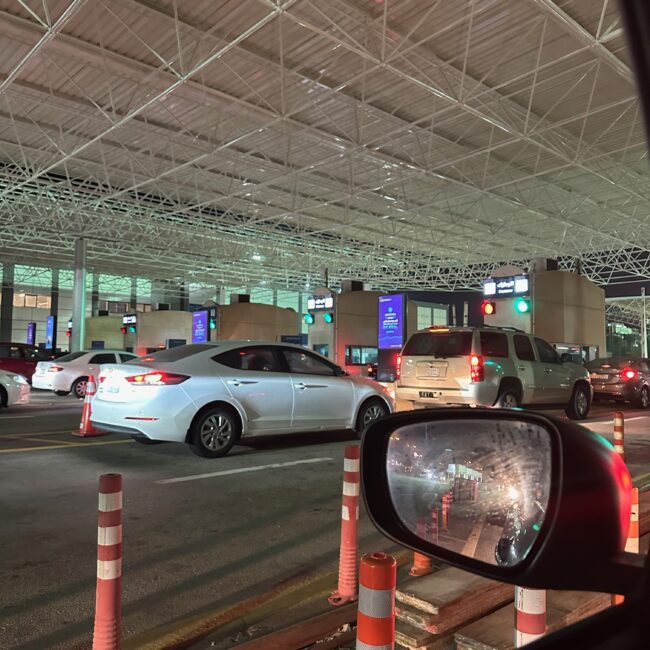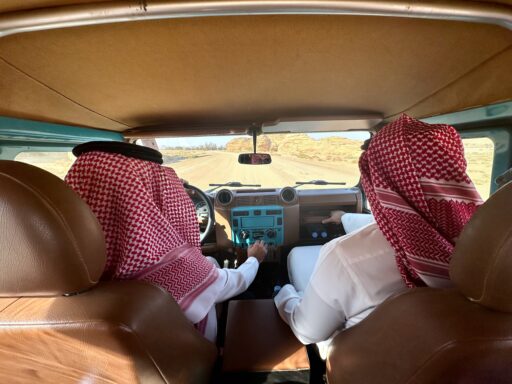This post is also available in:
Polski
Hello! 👋
Renting a car in Saudi Arabia allows you to explore the country at your own speed and discover places inaccessible by public transportation. While the process may seem complicated, especially for new travelers, with the right preparation it can be easily handled. In this guide, you’ll find all the information you need, from formal requirements to costs and practical tips to make renting and traveling Saudi Arabia’s roads easier.
Want to know our first impressions of the trip to Saudi Arabia and immerse yourself in this amazing adventure? Click here 🌍✨ and read more!
Requirements for traveling in the country
To travel in Saudi Arabia in a rental car, you need to meet a few key requirements and have the proper documents:
- Passport – Every traveler must have a valid passport, which will be required not only when entering the country, but also when renting a car. Typically, rental companies require a passport to be valid for at least six months from the date you plan to leave the country.
- Visa – Before entering Saudi Arabia, it is necessary to obtain a tourist visa. It can be obtained online using the eVisa system.
- Driver’s license – To drive on a foreign license, you need an International Driving Permit (IDP) issued in accordance with the 1968 Vienna Convention. In some cases, companies may only recognize an international document, so it’s a good idea to make sure you have it with you. In addition, your domestic driver’s license must be valid for the duration of the rental.
- Credit card – Most car rental companies in Saudi Arabia require a credit card as a guarantee. They usually block a deposit on it, which is unlocked when the car is returned. A debit card may not be accepted.
- Minimum age – 18 years old. However, some rental companies may require the driver to be at least 25 years old, especially when renting larger or luxury vehicles.
These requirements are the basic formalities that must be met in order to safely and legally rent a car and travel in Saudi Arabia.
International driving license – how to obtain it?
If you plan to rent a car in Saudi Arabia, an International Driving Permit (IDP) will be an essential document. Polish citizens can obtain this document by submitting an application to the communications department with jurisdiction over their place of residence, such as a city or county office. Application forms are available on the offices’ websites, and the procedure itself usually requires a personal visit to the office. It’s a good idea to make sure you have all the required documents with you, including:
- Completed IDP application,
- Actual photo,
- Valid Polish driver’s license,
- Proof of payment
More information can be found on government and municipal websites:
- GOV.PL Get an international driver’s license,
- International Driving Permit
- Warsaw 19115 Issuance of an international driving license
If you are not a citizen of Poland, you can obtain an International Driving License in your country before traveling to Saudi Arabia. The process varies from country to country, but usually involves submitting an application to the appropriate institution, such as a transportation authority or automotive organization. It is important that the International Driving License is issued in accordance with the 1968 Vienna Convention and is valid for the duration of your stay in Saudi Arabia.
Check the local regulations in your country and make sure you have both a valid national driver’s license and IDP to legally rent a car and drive in Saudi Arabia. For more information: internationaldrivingpermit.org
Where to rent a car in Saudi Arabia?
In Saudi Arabia, cars can be rented in many locations, both at airports and in city centers. Popular car rental companies in Saudi Arabia include Avis, Hertz, Budget, Sixt, and Alamo. Examples of local companies include Al Wefaq Rent a Car and Key Rent a Car.
In our opinion, the most convenient place to rent a car is at airports. It’s a good idea to book a car online in advance to make sure the model you want will be available upon arrival, and to avoid higher last-minute prices. We make all our reservations at Economy Car Rentals.
What costs are involved?
The cost of renting a car in Saudi Arabia can vary depending on several factors. Here are the approximate costs to look out for:
- Economical cars: Prices start at around SAR 80-120 per day.
- Mid-range cars: Renting a larger or more comfortable car costs between SAR 150-300 per day.
- ATVs/SUVs: Prices start at around SAR 250 and can reach SAR 600-800 per day, depending on the make and model.
- Luxury cars: Prices start at around SAR 500 and can go up to SAR 1,500 per day.
In addition to the basic rental price, it is worth keeping in mind the additional fees that may apply:
- Insurance: Basic insurance is usually included in the rental price, but full coverage (such as against theft or damage) may incur additional costs.
- Deposit: Many companies block a deposit on a credit card, which is returned when the car is returned undamaged.
- Additional Driver: Adding another driver to the rental agreement may require an additional fee.
- Accessories: Renting GPS, child seats, or other equipment involves additional costs.
- Airport fees: airport rentals can come with additional administrative fees. For the most part, our bookings already included potential airport fees in the rental price, and renting a car in the city can be more expensive than at the airport.
In Saudi Arabia, fuel is relatively cheap compared to European prices. Gasoline costs about SAR 2.33 per liter.
Most roads in Saudi Arabia are free, and toll roads are virtually non-existent.
Insurance
Under most car rentals in Saudi Arabia, basic insurance (CDW – Collision Damage Waiver) is already included in the price. It covers liability for collision damage, but there is often a deductible, an amount that the driver must pay out of pocket in the event of damage.
In some cases, coverage can be extended by purchasing additional insurance on the portal where we book the car, or directly from the rental company. However, it is worth being careful, as some companies will try to “force” this insurance on us, arguing, for example, potential vehicle breakdowns or other problems. Keep in mind that basic insurance is often sufficient, and additional policies may be unnecessary, especially if you already have coverage from other sources.
If you have travel insurance, a credit card with insurance, such as Revolut, N26, or travel insurance that covers the cost of a deposit in case of damage, buying additional insurance in most cases will not be necessary. It’s worth making sure your policy from these sources covers car rentals, which can save you unnecessary costs.
Travel insurance – the basis for safe travel
When traveling to countries outside the European Union, where the EHIC card does not work, travel insurance is an absolute necessity. Even if you have an EHIC, it is worth remembering that it may not cover all costs in case of health problems. That’s why it’s always advisable to have comprehensive travel insurance, especially in countries like Saudi Arabia, where medical costs can be high.
In this way, we can travel with peace of mind, without worrying about the additional expense of renting a car or possible health problems.
Road rules and regulations in Saudi Arabia
Saudi Arabia has a number of road rules that may differ from those known in Europe, so it’s a good idea to familiarize yourself with them before renting a car. Here is key information to help you drive safely on Saudi roads.
Road traffic
- Right-hand traffic applies, as in most countries around the world.
- Speed limits: Speed limits are clearly marked and vary depending on the type of road:
- In cities: 50 to 80 km/h.
- On highways: from 100 to 140 km/h. Speeding is severely punished, and fines are high.
- Speed cameras: There are many speed cameras in Saudi Arabia that record traffic offenses such as speeding and running red lights. Unlike in Poland, these speed cameras are not marked with reflective foil or information signs in front of the device. This means that drivers have to be extra vigilant, as they are difficult to spot and the penalties are severe.
- Seat belts: Using seat belts is mandatory for all passengers in both front and rear seats.
Additional rules
- Phone use: Using a cell phone without a hands-free kit is prohibited while driving. The penalties for this offense are high.
- Women’s regulations: As of 2018, women can legally drive cars in Saudi Arabia.
- Alcohol and driving: Alcohol is completely prohibited in Saudi Arabia, and driving under the influence of alcohol is a crime with very serious legal consequences, including prison sentences.
Reality on the road
Drivers in Saudi Arabia can be aggressive, and the driving style can be dynamic and sometimes chaotic. Caution is advised, especially in crowded cities, where traffic laws may be more loosely interpreted by local drivers. In practice, it is not uncommon to apply the rule that the larger vehicle has priority. In addition, some drivers may ignore lanes, leading to sudden maneuvers that force others to react quickly. It is important to be patient, avoid confrontations, and remember that driving culture differs from European standards, so a defensive driving style may be the best approach.
How to avoid extra fees and hidden costs?
To avoid unpleasant surprises when renting a car, it is worth paying attention to several key aspects:
- Online booking: make your reservation in advance online. This allows you to compare prices and get a thorough understanding of the rental terms, avoiding higher fees on the spot.
- Fuel policy: Always choose the “full to full” option. Returning with an incomplete tank incurs additional refueling fees, often much higher than the standard price at the station.
- Insurance deductibles: check the amount of the deductible that applies to basic insurance and whether additional insurance is really necessary. Beware of pressure from the rental company to purchase extended insurance if you have alternative coverage from other sources (such as a credit card).
- Return Conditions: Make sure you understand the rules for returning the vehicle, including the times and place of return. Minor delays may incur charges for an additional day of rental.
- Liability for damages: Make sure what damages are covered by insurance and what costs you may incur in the event of an accident. Some rental companies may try to shift liability to you for minor damages that are not your fault.
- Cancellation and change of reservation: Check the terms and conditions for cancellations and changes to reservations. In some cases, changes made close to the rental date may incur additional charges.
- Chargeback: If you encounter wrongful charges, it is worth remembering to use the chargeback procedure on your payment card. You can report the unauthorized transaction to the bank, which will process the chargeback.
Document the receipt and return of the car
To avoid unforeseen charges:
- Inspect the vehicle: Before taking delivery, inspect the car carefully, writing down any existing damage in a report.
- Take pictures: Document the exterior and interior condition of the car upon receipt and return, including fuel levels.
- Confirmation of return: Ask the rental company employee to confirm in writing that the car has been returned without new damage.
- Keep documents: Keep contracts, confirmations and photos as evidence if disputes arise.
Refueling the car
- Two types of fuel are most commonly available – 95-octane and 91-octane. Most passenger cars run on 91 gasoline.
- Most gas stations accept both cash and credit cards, but in smaller towns it is better to carry cash. Larger stations, especially along highways, offer card payments without a problem.
- It is worth bearing in mind that some gas stations only accept Visa cards issued within Saudi Arabia. Before refueling, it’s best to ask the attendant if their payment terminal supports Mastercard or Visa cards issued outside Saudi Arabia. If you hear “Visa Saudi Arabia,” this means that only local cards are accepted.
- At larger stations, especially along highways, there is usually an ATM nearby, which can save the situation if you find that card payment is not possible.
- At most stations, the staff fills up the fuel for you.
- Most gas stations operate 24 hours a day, especially those along major roads and highways, which is convenient for travelers.
Traveling by car outside Saudi Arabia
Some car rental companies in Saudi Arabia allow you to travel by vehicle to neighboring GCC countries such as Bahrain, the United Arab Emirates and Kuwait. Budget is one company that offers this option, but it’s worth verifying before booking. Each rental company has its own rules and may charge additional fees for traveling outside Saudi Arabia.
An example of a popular route is the trip from Dammam to Bahrain via the King Fahd Bridge. Such a trip may involve additional costs, including:
- Additional Liability Insurance: At the border, you will need to purchase additional car insurance that covers the destination country.
- Border crossing fees: some rental companies may charge a fee for permission to travel to another country.
Remember that entering Bahrain also requires a visa. Although it can be obtained online, in many cases it is cheaper to buy a visa directly at the border.

